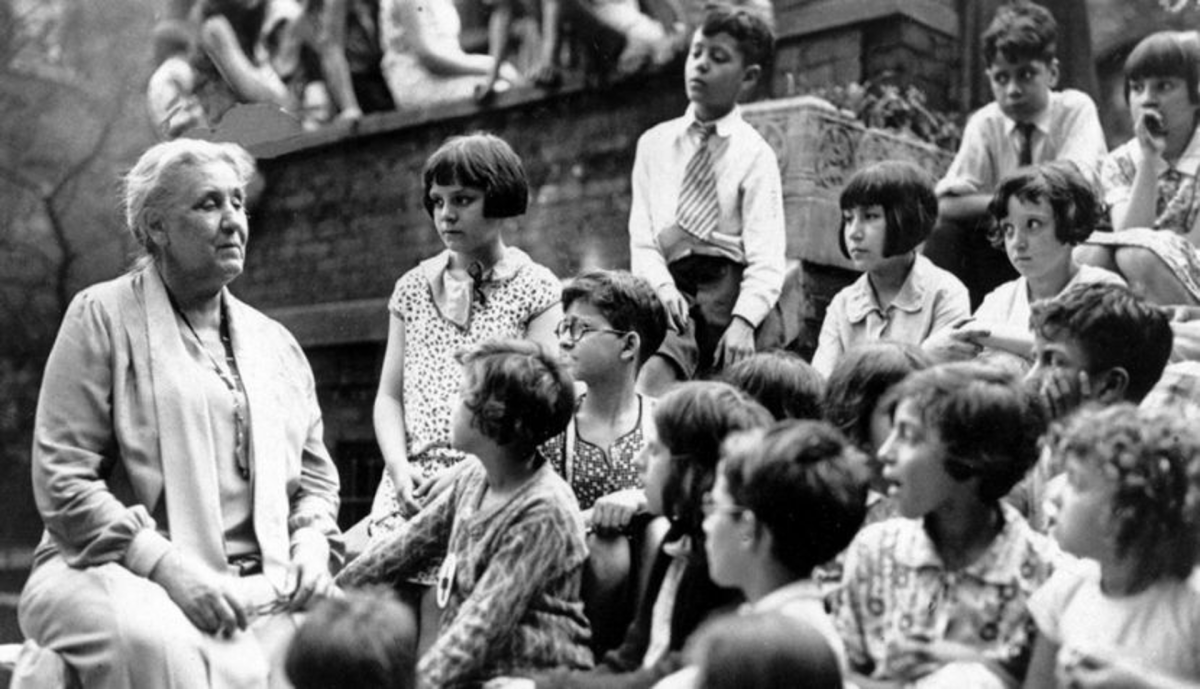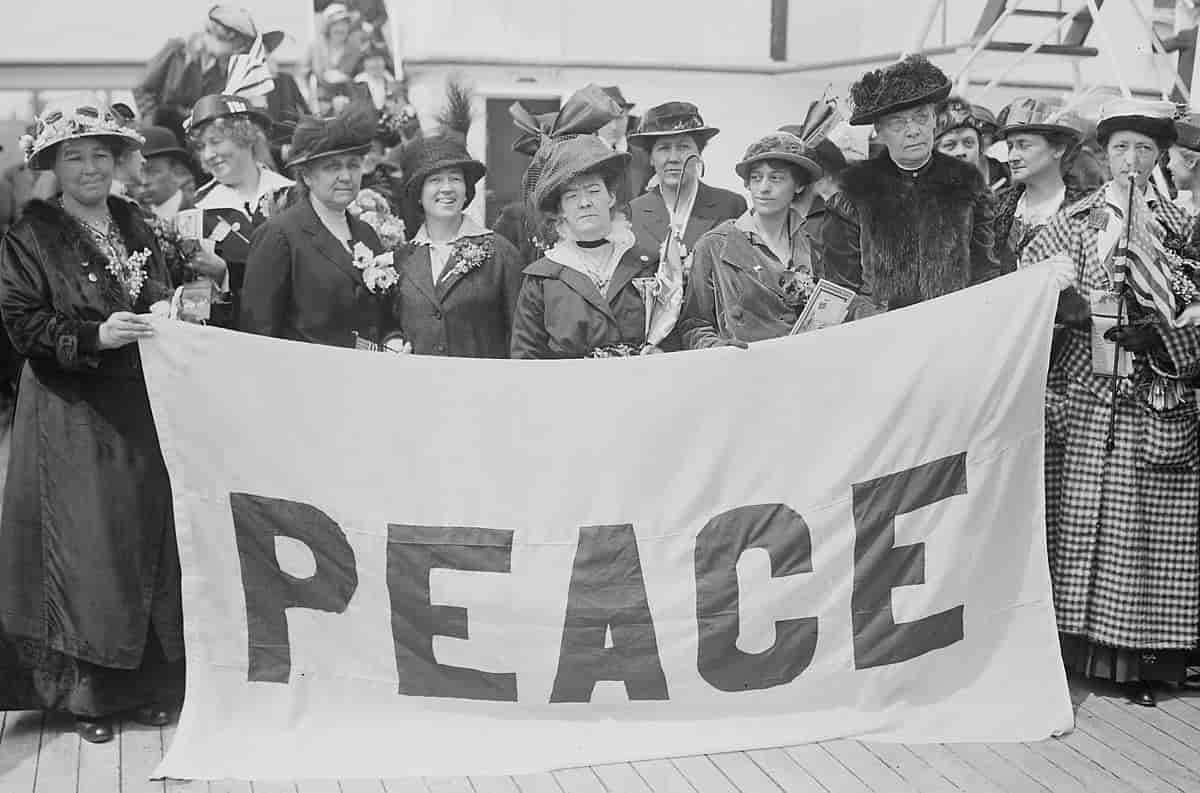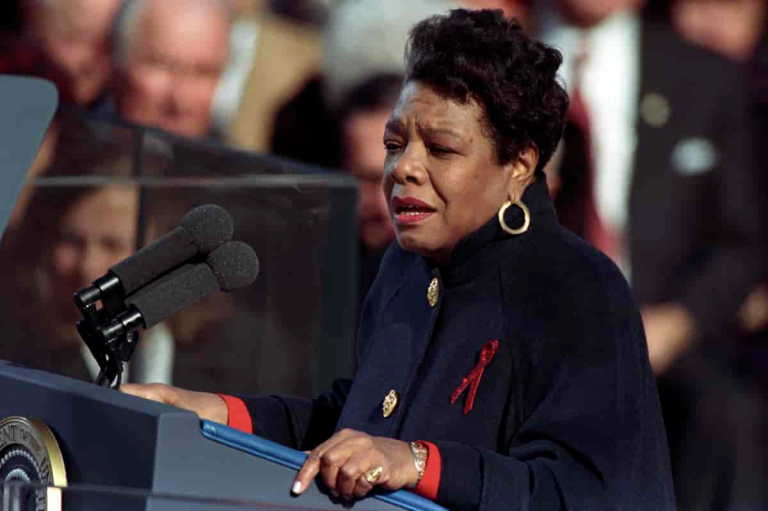Jane Addams : American Social Reformer
A prominent social reformer, Jane Addams dedicated her life to advocating for the urban poor. Her legacy teaches us that individual well-being is intertwined with the broader pursuit of justice and equality.
Jane Addam’s Accomplishments & Early Life
Jane Addams was born in Cedarville, Illinois, on September 6, 1860. She was raised in a wealthy and influential family and received a high-quality education. However, she was deeply affected by the poverty and social inequality she witnessed during her travels and studies in Europe.
In 1889, Addams co-founded Hull House, a settlement house in Chicago that aimed to provide social and educational services to the immigrant community. Hull House’s success led to the establishment of many other settlement houses across the country. Addams and her colleagues at Hull House advocated for improved living conditions, healthcare, education, and workers’ rights.
Addams was a strong advocate for peace and social justice. She co-founded the Women’s International League for Peace and Freedom in 1919 and actively campaigned against World War I. In 1931, she became the first American woman to receive the Nobel Peace Prize for promoting peace and social reform.

Throughout her life, Jane Addams fought tirelessly for the rights of the underprivileged and marginalized. Her work as a social reformer, pacifist, and feminist impacted American society and laid the foundation for future social justice movements. She passed away on May 21, 1935, leaving a lasting legacy of compassion and activism.
Pioneering Advocacy of Jane Addams
A pioneer of reform and pacifism, Jane Addams founded Hull House in Chicago in 1889 to aid immigrants through education and social services. Witnessing exploitation and poverty, she tirelessly advocated against child labor, championing workers’ rights, improved public health, affordable housing, and global cooperation for peace.
Her direct experiences fueled her fight for progressive reforms. Jane Addams’ contribution to sociology is evident in her role as a critical founder of modern social work, shaping the concept of the “sociological imagination” through her speeches, writings, and groundbreaking community organizing.
What did Jane Addams do?
Hull House
As founder of the pioneering Hull House settlement in 1889, Jane Addams created a community center in Chicago that provided vital services for vulnerable immigrant populations. Seeing poverty, desperation, and exploitation firsthand within this community, she embarked on a lifetime of campaigning for progressive reforms.
Affordable Housing Projects
Addams advocated tirelessly for improved labor regulations preventing worker exploitation, affordable housing projects like cooperative lodging houses to aid families in need, food assistance programs to combat malnutrition, public health services expansion to serve disadvantaged neighborhoods, and the establishment of juvenile courts to promote rehabilitation over punishment.
Jane Addams Peace Association
She also co-founded prominent women’s peace organizations, including the Women’s Peace Party, in 1915, which evolved into the Women’s International League for Peace and Freedom, which is still active today.
Inspired by her staunch pacifism, Addams established the Jane Addams Peace Association in 1915 to assist conscientious objectors, promote nonviolence and alternatives to warfare, and organize massive anti-war protests opposing WWI, helping catalyze more significant opposition.
Jane Addams Books
Beyond her direct actions and advocacy achievements, the prominent books authored by Addams – like “Twenty Years at Hull House” and “Peace and Bread in Time of War” – documented her work and ensured her lasting historical influence as both a key leader for social justice reforms and anti-war figure.
Improving Labor Regulations
Addams was a prominent advocate for improved labor regulations, including limits on child labor and reforms in working conditions for exploited factory workers. She gave speeches, wrote, and organized around these labor rights issues.
Promoting Public Health
Within immigrant communities, Addams witnessed and worked to rectify major public health issues by campaigning for sanitation system improvements, reducing illiteracy to promote public health knowledge, and expanding medical services.
Through her speeches, writings, groundbreaking activism, and settlement house programs emulated nationwide as a social services model – Jane Addams pioneered major progressive reforms while acting as an uncompromising champion for society’s most vulnerable. The Jane Addams Peace Association continued her legacy for over a century until it dissolved in 2017 after decades of peace and civil rights activism led by Addams.
Famous Jane Addams Quotes
“True peace is not merely the absence of tension; it is the presence of justice.” – This powerful quote emphasizes the inseparable connection between peace and justice.”
“Old-fashioned ways that no longer apply to changed conditions are a snare in which women’s feet have always become readily entangled.”
“The good we secure for ourselves is precarious and uncertain until it is secured for all of us and incorporated into our common life.”
“Nothing could be worse than the fear that one had given up too soon and left one unexpended effort that might have saved the world.”
“We may either smother the divine fire of youth or we may feed it.”
“It is easy for the world to judge of prison morals. It is very easy for the world to judge of the great national movement by the spasmodic and apparently meaningless violence to which it occasionally gives way.”

Jane Addams Impact
Over eight decades after her passing, Jane Addams’s progressive legacy remains a powerful model for activating compassionate change.
Through her Settlement House uplifting immigrants and helping catalyze reforms protecting the exploited – to her pacifism advocacy rejecting violence – Addams’ dogged belief in people over politics still lights the way forward.
Conclusion
Throughout history, pioneering women have championed access to education to empower and uplift their communities. Four such advocates were social reformer Jane Addams, Olympic athlete Wilma Rudolph, media trailblazer Oprah Winfrey, and poet Maya Angelou. Though their backgrounds differed, all four emerged as vocal proponents for advancing educational opportunities for women and girls.
Addams provided hands-on educational spaces to newly arrived immigrant populations. Rudolph motivated youth and lobbied leaders to dismantle barriers to education. Committed to advocacy and access, Oprah established a leadership academy for disadvantaged youth in South Africa.
Angelou used her prolific writing to illuminate the stories of marginalized groups and the power of education. Their courageous efforts continue to inspire reforms that promote equality and empowerment through education.






